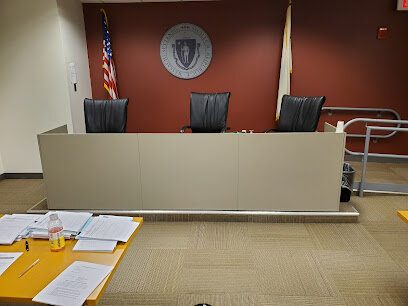Best Criminal Litigation Lawyers in Connecticut
Share your needs with us, get contacted by law firms.
Free. Takes 2 min.
Or refine your search by selecting a city:
List of the best lawyers in Connecticut, United States

About Criminal Litigation Law in Connecticut, United States
Criminal litigation in Connecticut involves the legal process of prosecuting and defending individuals or entities charged with committing crimes. These processes unfold within the criminal courts of the state, where the government brings charges against accused persons. The scope of criminal cases can range from minor infractions and misdemeanors to serious felonies. Connecticut has its own specific statutes and procedures that govern how criminal cases are initiated, processed, tried, and resolved. The outcome of a criminal case can include penalties such as fines, probation, incarceration, or other consequences, making the stakes particularly high for all involved.
Why You May Need a Lawyer
Facing criminal charges or being involved in a criminal investigation is a serious matter with potentially life-changing consequences. Here are some situations where seeking the assistance of an experienced criminal litigation lawyer is strongly advised:
- You are arrested or charged with a crime
- You are being investigated by law enforcement
- You receive a summons to appear in criminal court
- You want to negotiate a plea deal with the prosecution
- You wish to protect your rights during police questioning
- You need guidance through the complexities of Connecticut criminal procedures
- You wish to appeal a conviction or mitigate a sentence
- Your constitutional rights may have been violated
A qualified criminal defense attorney understands the intricacies of Connecticut criminal law and procedure, can help protect your rights, develop an effective defense strategy, and advocate on your behalf in negotiations or at trial.
Local Laws Overview
Connecticut criminal law is governed by the Connecticut General Statutes, as interpreted by state courts. Some key aspects to be aware of include:
- Classification of Crimes: Crimes are generally categorized as infractions, misdemeanors, or felonies, depending on the severity of the offense and potential penalties.
- Arrest and Booking: Police must have probable cause to arrest, and certain procedures, such as advising you of your right to remain silent, must be followed.
- Arraignment: The initial court appearance where charges are read and bail is considered. Defendants are advised of their rights at this stage.
- Plea Bargaining: Many cases are resolved through plea agreements between the prosecution and defense, subject to court approval.
- Pretrial Process: Includes motions, discovery, and hearings to resolve legal or procedural issues before trial.
- Trial: Defendants are entitled to a jury trial for most misdemeanors and all felonies. The prosecution bears the burden of proving guilt beyond a reasonable doubt.
- Sentencing: Sentences are influenced by statutory guidelines, judicial discretion, and sometimes mandatory minimums depending on the offense.
- Appeals: Convicted individuals have the right to appeal to higher courts under certain conditions.
Frequently Asked Questions
What should I do if I am arrested in Connecticut?
Remain calm, do not resist, and ask to speak with an attorney as soon as possible. Do not answer questions from law enforcement without your attorney present.
Do I have to talk to the police if I am being investigated?
No. You have the right to remain silent and to consult with a lawyer before answering any questions. Anything you say can be used against you in court.
What is the difference between a misdemeanor and a felony in Connecticut?
Misdemeanors are less serious crimes that carry penalties of up to one year in jail, while felonies are more serious crimes punishable by more than one year of incarceration.
What is an arraignment?
Arraignment is your first court appearance after an arrest, where you are formally charged, and the judge determines bail and other conditions of release.
Can I get my criminal record sealed or expunged in Connecticut?
In certain cases, you may be able to have your record erased or expunged, especially if charges were dismissed or you completed certain diversionary programs.
Will I have a jury trial?
You have the right to a jury trial for most criminal charges. However, you may waive this right and opt for a bench trial (trial by judge) in some circumstances.
What are the possible penalties if I am convicted?
Penalties can include fines, probation, community service, jail or prison time, and loss of certain rights or privileges. The severity depends on the charge and your criminal history.
Can I represent myself in a criminal case?
You are allowed to represent yourself, but it is not recommended. Criminal law is complex, and having an experienced attorney increases your chances of a favorable outcome.
How do plea bargains work in Connecticut?
A plea bargain is an agreement where you may plead guilty to a lesser charge or receive a lighter sentence, often to avoid a lengthy trial. The judge must approve any plea deal.
What happens if I violate probation?
Violating probation can result in additional penalties, including revocation of probation and imposition of the original jail or prison sentence. A hearing will determine the outcome.
Additional Resources
If you need further information or assistance in Connecticut, the following resources may be helpful:
- Connecticut Judicial Branch - Provides resources on criminal procedures, records, and court locations
- Connecticut Division of Criminal Justice - Handles prosecution of criminal cases and has information on victim services
- Connecticut State Bar Association - Offers lawyer referral services and legal information
- Connecticut Office of the Public Defender - Provides legal representation to eligible individuals who cannot afford a lawyer
- Local law libraries and legal aid organizations throughout Connecticut
Next Steps
If you are facing criminal charges or are under investigation, time is of the essence. Consider taking the following steps:
- Do not discuss your case with anyone except your lawyer
- Contact a qualified Connecticut criminal defense attorney as soon as possible
- Gather any documents or information related to your case for review by your attorney
- Follow your attorney's advice and attend all scheduled court appearances
- Utilize the resources listed above for additional support and guidance
Remember, a knowledgeable attorney can be your strongest advocate, helping you understand your rights, the legal process, and working to achieve the best possible outcome for your situation.
Lawzana helps you find the best lawyers and law firms in Connecticut through a curated and pre-screened list of qualified legal professionals. Our platform offers rankings and detailed profiles of attorneys and law firms, allowing you to compare based on practice areas, including Criminal Litigation, experience, and client feedback.
Each profile includes a description of the firm's areas of practice, client reviews, team members and partners, year of establishment, spoken languages, office locations, contact information, social media presence, and any published articles or resources. Most firms on our platform speak English and are experienced in both local and international legal matters.
Get a quote from top-rated law firms in Connecticut, United States — quickly, securely, and without unnecessary hassle.
Disclaimer:
The information provided on this page is for general informational purposes only and does not constitute legal advice. While we strive to ensure the accuracy and relevance of the content, legal information may change over time, and interpretations of the law can vary. You should always consult with a qualified legal professional for advice specific to your situation.
We disclaim all liability for actions taken or not taken based on the content of this page. If you believe any information is incorrect or outdated, please contact us, and we will review and update it where appropriate.
Browse criminal litigation law firms by city in Connecticut
Refine your search by selecting a city.









